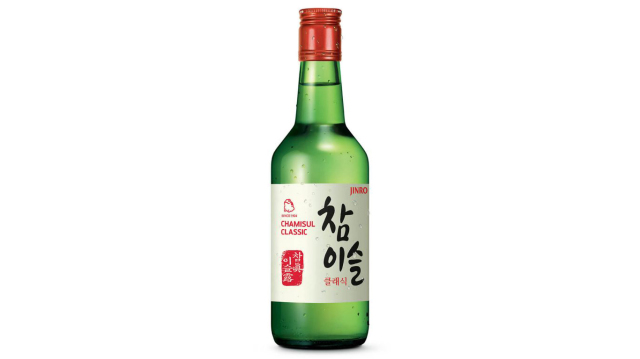The origin of soju dates back to the 13th century Goryeo, when the Levantine distilling technique was introduced to the Korean Peninsula during the Mongol invasions of Korea (1231–1259), by the Yuan Mongols who had acquired the technique of distilling arak from the Persians during their invasions of the Levant, Anatolia, and Persia. The distilleries were set up around the city of Gaegyeong, the then capital (current Kaesong).
Soju is traditionally made by distilling alcohol from fermented grains. The rice wine for distilled soju is usually fermented for about 15 days, and the distillation process involves boiling the filtered, mature rice wine in a sot (cauldron) topped with soju gori (two-storied distilling appliance with a pipe). In the 1920s, over 3,200 soju breweries existed throughout the Korean Peninsula.
Soju referred to a distilled beverage with 35% ABV until 1965, when diluted soju with 30% ABV appeared with South Korean government's prohibition of the traditional distillation of soju from rice, in order to alleviate rice shortages. Instead, soju was created using highly distilled ethanol (95% ABV) from sweet potatoes and tapioca, which was mixed with flavorings, and sweeteners, and water. The end products are marketed under a variety of soju brand names. A single supplier (Korea Ethanol Supplies Company) sells ethanol to all soju producers in South Korea. Until the late 1980s, saccharin was the most popular sweetener used by the industry, but it has since been replaced by stevioside.

